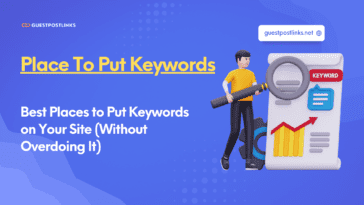When it comes to search engine optimization (SEO) and driving organic traffic to your website, understanding the difference between branded and non-branded keywords is crucial.
By strategically optimizing your content for these types of keywords, you can enhance your online visibility and attract the right audience to your website.
In this blog, we will explore the difference between branded and non-branded keywords, their importance in SEO, and how you can effectively optimize your content to target both types.
What’s The Difference Between Branded Vs. Non-Branded Keywords?
Branded keywords refer to search terms that contain your brand name or variations of it. These are specific to your business and represent direct searches for your brand.
On the other hand, non-branded keywords are generic search terms that are relevant to your industry or the products/services you offer but do not contain your brand name.
Also Read: What Are Branded Keywords? Why They’re Important, and How to Use Them
Examples of Branded Keywords And Non-Branded Keywords
Branded Keyword Examples:
- “Nike running shoes”
- “Apple iPhone”
- “Coca-Cola soda”
Non-Branded Keyword Examples:
- “running shoes for men”
- “smartphones with high-resolution cameras”
- “carbonated beverages”
Why Optimize for Non-Branded Search?
Optimizing your content for non-branded keywords is essential for expanding your reach and attracting new customers. These keywords target broader search queries related to your industry, products, or services, which can increase your visibility among potential customers who are not yet familiar with your brand.
By ranking well for non-branded keywords, you can tap into a wider pool of prospects and generate organic traffic from relevant search queries.
Why Optimize for Branded Search?
While non-branded keywords focus on reaching new customers, optimizing for branded keywords is crucial for brand recognition, loyalty, and driving repeat business.
By appearing prominently in search results for branded queries, you solidify your brand’s presence, establish trust, and reinforce your position as an industry leader.
Branded keywords also have higher conversion rates since they target users who are already familiar with your brand and actively seeking your products or services.
How To Optimize for Branded Search?
To effectively optimize your content for branded search, consider the following strategies:
Find Keywords Related to Your Brand
Research keywords that are closely associated with your brand, including product names, unique features, or specific offerings. Tools like Google Keyword Planner, SEMrush, or Ahrefs can help identify relevant keywords.
Pick Keywords Worth Targeting
Choose keywords that have a reasonable search volume and reflect your brand’s core offerings. Focus on keywords that are relevant, specific, and align with your target audience’s search intent.
Optimize Existing Content or Create Something New
Identify pages or blog posts on your website that can be optimized for branded keywords. Update the content to include relevant branded terms and ensure it provides value to your audience. Alternatively, create new content specifically targeting branded keywords.
Add Internal Links
Include internal links throughout your website that anchor text using your branded keywords. This helps search engines understand the relationship between your pages and reinforces the relevance of your brand for specific search terms.
Benefits of Branded Keywords And Non-Branded Keywords
Using branded and non-branded keywords together in your SEO strategy offers several benefits:
- Increased visibility in search results: Targeting both types of keywords expands your reach and ensures you appear in various search queries.
- Improved brand recognition: Branded keywords reinforce your brand’s presence and increase awareness among your target audience.
- Higher conversion rates: Branded keywords attract users who are more likely to convert into customers due to their familiarity with your brand.
- Broader audience reach: Non-branded keywords help you tap into new customer segments and drive organic traffic from relevant search queries.
Also Read: Ultimate SEO Glossary: 499+ Essential SEO Terms You Need to Know!
How Branded and Non-Branded Keywords Work Together
Branded and non-branded keywords complement each other to create a well-rounded SEO strategy. By leveraging non-branded keywords, you expand your visibility and attract new customers, while branded keywords solidify your brand’s identity and drive loyalty.
A balanced approach to optimizing for both types of keywords ensures you cover the full spectrum of potential customers and maximize your organic traffic potential.
Determining When To Use Branded and Non-Branded Keywords
The decision to use branded or non-branded keywords depends on your marketing goals, target audience, and stage of brand awareness.
Here are some considerations:
When To Use Branded Keywords
- Strengthening brand recognition and loyalty
- Promoting specific products or services
- Targeting users already familiar with your brand
- Reinforcing your brand’s unique selling propositions
Drawbacks Of Branded Keywords And Non-Branded Keywords
While branded and non-branded keywords have their benefits, there are a few drawbacks to consider:
- Branded keywords may have limited search volume.
- Non-branded keywords can be highly competitive, requiring additional effort to rank well.
- Overemphasizing branded keywords may limit your reach among potential customers who are not yet aware of your brand.
Filtering Branded and Non-Branded Keywords
Segmenting and filtering branded and non-branded keywords in your SEO analysis can help you measure their individual performance and optimize accordingly. Tools like Google Analytics, SEMrush, or Ahrefs can assist in categorizing and tracking the performance of your keywords.

Which Is Better: Branded Keywords Or Non-Branded Keywords?
Neither branded nor non-branded keywords are inherently better than the other. Both types serve different purposes in your SEO strategy and should be used in conjunction to maximize results. By leveraging the strengths of each, you can effectively reach and engage your target audience at various stages of their customer journey.
Final Thoughts
Understanding the difference between branded and non-branded keywords is essential for a successful SEO strategy. By optimizing your content for both types of keywords, you can expand your visibility, attract new customers, and reinforce your brand’s identity. Balancing the use of branded and non-branded keywords ensures you cover a wide range of search queries and maximize your organic traffic potential.
FAQs
Branded keywords attract users who are already familiar with your brand and actively seeking your products or services. By ranking well for branded keywords, you can capture this audience and convert them into new customers.
Focusing on branded keywords helps solidify your brand’s presence, establish trust, and drive repeat business. Branded keywords also have higher conversion rates since they target users who are already familiar with your brand and actively searching for your offerings.
Generic keywords (non-branded) are valuable for reaching new customers and expanding your audience. However, branded keywords are crucial for brand recognition, loyalty, and driving repeat business. Both types of keywords have their benefits and should be used together in a comprehensive SEO strategy.
Yes, using branded keywords is important to reinforce your brand’s presence, increase brand recognition, and drive loyalty among your target audience. However, a balanced approach that incorporates both branded and non-branded keywords is recommended for a well-rounded SEO strategy.





 No publishers in the cart.
No publishers in the cart.